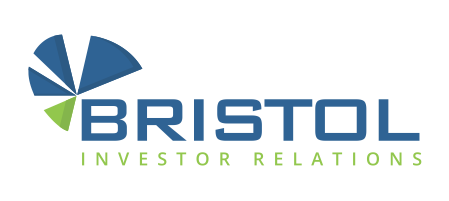Using in-house Investor Relations or an external IR firm – which is the best way to go?
Using in-house Investor Relations or an external IR firm – which is the best way to go?

There are always two sides to any argument and in this case, deciding whether to use in-house IR resources or an external IR firm, I don’t think there can be a definite answer or clear winner. The answer might lie somewhere in the middle in a rather gray area and should take into consideration the industry, size of business, the required reach and a host of other factors that all play a role in the decision. In favor of the internal IR professional, is the fact that they get to know the company inside and out, and by knowing the inner workings of the firm and the flow of information they often have quicker lead time for decision making. On the other hand an external IR professional or IR agency who knows best in class will have more people resources and can leverage a vast network of investment community contacts, meaning they can often grow the reach of the IR program almost from the outset.
When choosing an IR agency or external IR practitioner, it is imperative to select correctly for your company. That can entail knowing the team and the experience of the individuals who will be managing your account, deciding if it’s a match in terms of culture, fit and vision of the IR process and considering how well the external IR team can work with the management of the firm and internal staff. Overall annual IR budget and monthly retainers in relation to in-house staff would play a key role in deciding if an IR agency should be used or not. The measurement of value in terms of reporting to management, fund raising and general reach amongst the investment community are also of consideration to a firm when deciding which way to go. Management needs to understand how the agency works, their reporting style and frequency, deliverables and limitations before making an informed decision on whether this route might work for the firm. A consideration when choosing externally is continuity of the team or individual who will be servicing your company. If they leave the IR firm, will service standards still be upheld? Will the new account manager know your company as well as the previous account manager who had perhaps been the account manager for many years and knew the company and its performance inside and out?
In contrast, going in-house and using an internal investor relations resource or team of people depends largely again on the IR budget and finding the right people, skill set and fit for the company. Often IR practitioners come with a network of existing industry contacts from the financial community and specific business industry which could be beneficial. However, if they don’t and are new to the industry, market cap size or geographic location, this would need to be a consideration. Often companies prefer to spend time and resources to build an internal IR department and invest in internal staff versus external resources that are more transient. The amount and content of work also play a role in the decision of hiring internally versus externally and using an agency. Annual reports, corporate social responsibility reports and other communications materials aside from the usual SEDAR filings, investor presentations and updates, spokesperson role, media relations, website development and upkeep can be time consuming and some IR agencies might shy away from or be unable to deliver on all aspects of the work required by a firm. All these factors play into a company’s long term view on resourcing and strategy which is often bigger and more complex than just a yes or no answer to a hiring question.
There is no right or wrong answer to this time debated question of agency versus in-house expertise when it comes to investor relations or other business functions. Ultimately, it will depend on the type of business you run, its stage of growth, revenues and market cap amongst others. Some companies might find, budget permitting, that good results could come from a hybrid and if you deploy both. The external distribution can help in attracting a larger pool of potential investors and street professionals while the internal skills sets can leverage other functions that are best done in-house from a company employee. Time will tell, unfortunately often though trial and error, what is a better fit for your company and team versus a prescribed “one size fits all” model.
Sources:
IR Magazine
Ciri and Ciri wIRed
Commpro
